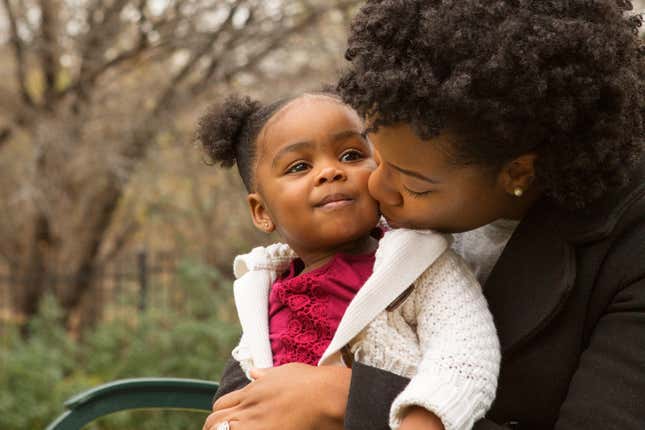
At the age of 52, Veronica Rex was put behind bars.
The Philadelphia native and grandmother of nine was arrested last year after disarming an armed man in a bar where she worked—unaware that the man had a license to carry a firearm. After he filed a complaint several days later, Rex was arrested; her bail set at $50,000. It seemed all but likely she would miss the funeral of her son, who had recently passed away.
“I was ripped away from my children and grandchildren with few resources or support,” Rex told The Root.
Then the National Bail Out collective, a group of dozens of black-led criminal justice organizations, lawyers, and activists across the country, got wind of Rex’s case and began organizing to set her free. It was part of a larger campaign, one held each year since 2017: Black Mamas Bail Out, a nationwide effort to free black mothers from jail so they can spend Mother’s Day home with their families.
Within a week, Rex’s bail had been paid by the collective—just in time for her to attend her son’s funeral.
Over the last three years, the Black Mamas Bail Out campaign has helped free more than 300 black mothers like Rex. This year, the campaign kicks up again in more than two dozen cities across the U.S., with the goal of decarcerating even more black women.
While the number of people incarcerated in the U.S. has gone down over recent years, women remain the fastest-growing segment of the prison population. State prisons and jails play a significant role in this trend.
A report last year from the nonprofit criminal justice advocacy group Prison Policy found that, though women make up a small portion of the total population of incarcerated people, the number of women thrown behind bars has grown at a pace much higher than that of men in the last forty years. In state prisons nationwide, the increase was an astounding 834 percent—“more than double the pace of the growth among men,” wrote Prison Policy.
Over the same period, the number of women held in local jails—many of whom are pre-trial defendants—has grown “in lockstep with state prison populations,” the group writes, “even exceeding state prison growth since 2000.”
For many of these women, being unable to post cash bail keeps them locked up and away from their families. And while the number of black women incarcerated has been declining over recent years, as of 2016, they were still imprisoned at twice the rate of white women.
According to a Black Mamas Bail Out press release, nearly 70 percent of women who are in jail because they can’t afford money bail are mothers of children under 16.
“What’s more, over 80 percent of women who are incarcerated have experienced sexual or physical abuse,” said Marbre Stahly-Butts, executive director of the Law of Black Lives and one of the founders of Black Mama’s Bail Out. “We’re on the frontlines and navigating the bowels of the system as we conduct these bailouts.”
Nor does the work stop once the women are bailed out. Since 2017, the grassroots bailout campaign has raised over $1.9 million. On top of covering bail costs, the NBO has also put those dollars toward family and community supports to help people who have been incarcerated transition back into home life. This includes help with job placement, which Rex received once she was released. The campaign also provides resources like reports on bail; webinars and fellowships.
Through their continued support post-bail, the NBO collective aims to build a political community around the mothers they’ve freed over the years. Doing so helps to serve another goal of the collective: substantive criminal justice reform that includes ending cash bail.
In their reform efforts, the NBO wants to center women who have been harmed by America’s draconian incarceration system—and are frequently left out of conversations about the impacts of mass incarceration.
“NBO is intentional as Black feminist organizers to focus on black women, femmes and queers, as all too often we are forgotten in a masculine-centric system,” National Bail Out collective Project Director Arissa Hall said.
This year, bail out events are scheduled to run from May 6 to 12, with Brooklyn, N.Y.; Atlanta; Detroit; Oakland; L.A., and Philly among the cities organizers will be gathering in.



